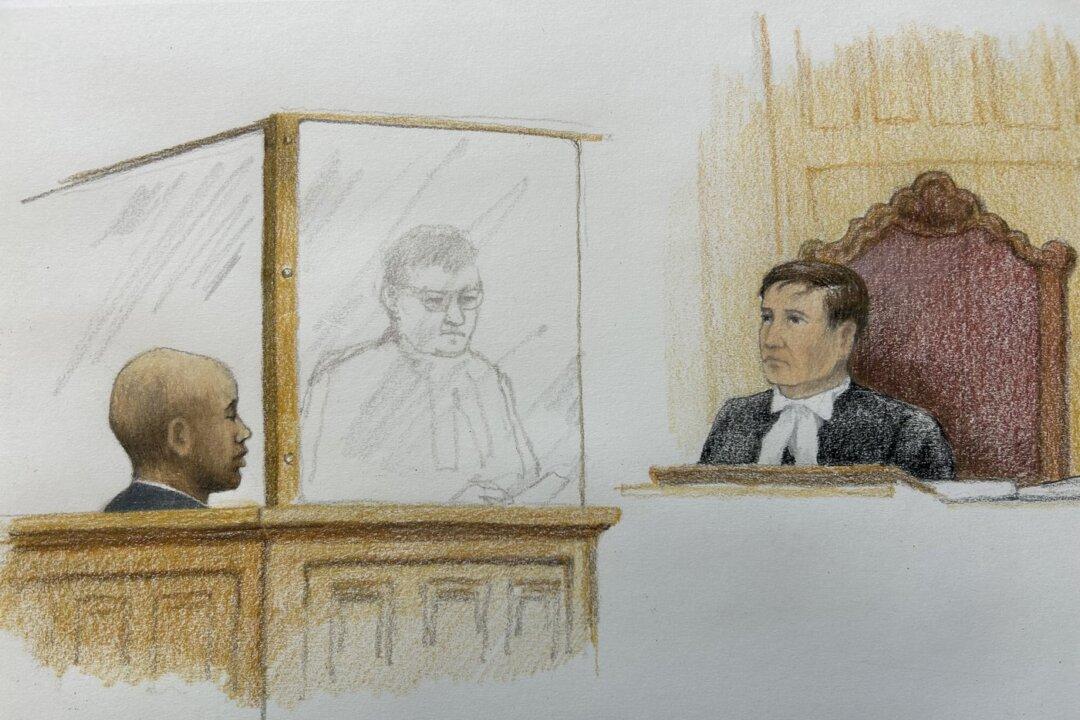The man who committed a deadly mass stabbing at a library in North Vancouver, B.C., two years ago, has apologized to each of his victims by name at his sentencing hearing.
Yannick Bandaogo’s lawyer says his client cannot explain a motive for the attack that killed one woman and wounded several other people, but in his statement, the 30-year-old told the court of a troubled childhood that led him into drug use.





